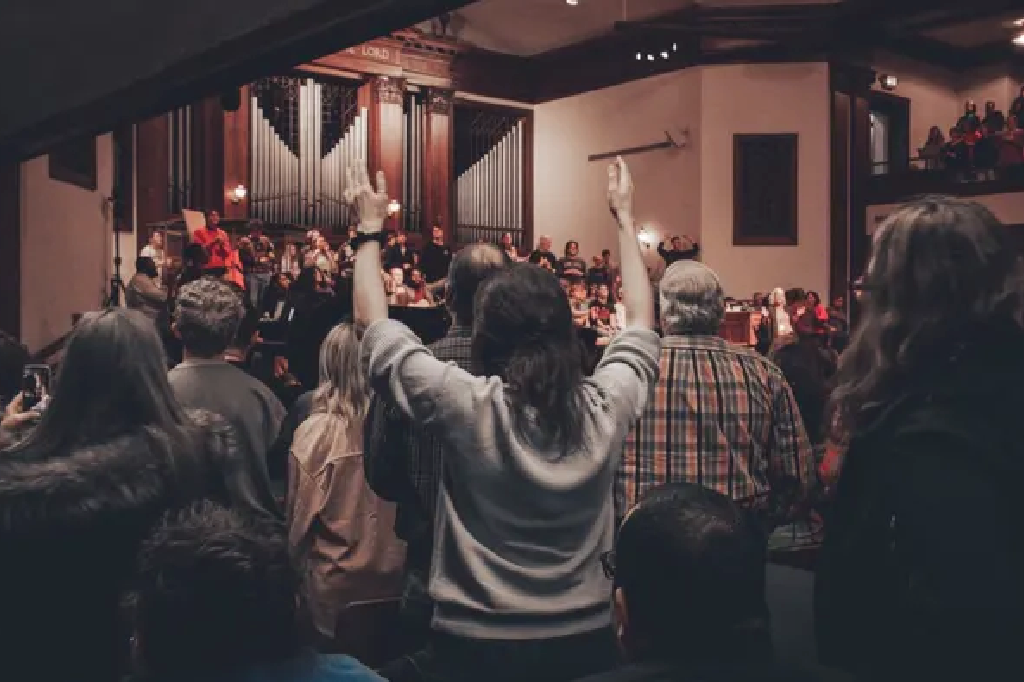“Do not leave here until you learn and experience the love of God so you can pour it out. The world needs this kind of love.”
This is what the Rev. Zach Meerkreebs ended on as he wrapped up his message1 at Asbury University’s chapel, which became the biggest revival we’ve seen in Gen Z’s generation so far. The stories, eyewitness accounts, and personal testimonies from people I trust leave no doubt in my mind of its authenticity and genuineness. Like all true visitations from the Lord, it is defined at its outset by humility and hunger, and as is also commonly the case, experienced and led by young people.
OneHope’s research on Gen Z confirms that this generation, especially in the U.S., are overwhelmed by the circumstances around them, discouraged by the present cultural reality, and thirsting for an authentic disruption of the status quo. Born in the wake of 9/11, their formative years were during the 2008 financial crisis, political toxicity, racial unrest, and the pandemic, which have undermined their security, self-confidence, and faith. They have not found sufficient answers to their questions or satisfaction in their souls from the world they have inherited. They’ve also developed a ubiquitous cynicism of the authorities above them and the peers around them, driving the generation toward an expressive individualism of distrust and emptiness, which results in high rates of mental illness, depression, and suicidal ideation. William G. McLoughlin, in his seminal work Revivals, Awakenings, and Reform, observed that, “Awakenings begin in periods of cultural distortion and grave personal stress, when we lose faith in the legitimacy of our norms, the viability of our institutions, and the authority of our leaders in church and state.”2 Gen Z is hungry and searching for a reality that transcends the natural order and for a source that can offer true satisfaction.
In the digital age, Gen Z’s humanity and relationships threaten to be replaced by a synthetic, cosmetic, and artificial existence. Social media’s sensationalism and overstimulation have cultivated a desire for uninterrupted entertainment, making this revival distinctively countercultural in its pause and serenity. To come together in authentic community and experience their Creator, Savior, and Lord in a way they can feel, that consumes them with love, security, and peace, transcends all the technology, knowledge, and human understanding that this generation was programmed to believe would make them happy, but left them empty. A visitation from God awakens us to our desperate need for Him and a desire to abandon our own identity and aspirations to Him.
Emile Durkheim, a father of modern social science, observes in human history that there are always “moments of effervescence,” “periods of creation and renewal,” “times when people ‘are brought into more intimate relations with one another, when meetings and assemblies are more frequent, relationships more solid and the exchange of ideas more active.’”3 It is these moments of recalibration that make us human, and I have no doubt that the outpouring from the revivals happening not only in Asbury, but at other institutions around the country, will result in unprecedented harvest around the world.
Charles Finney, a leader in the Second Great Awakening in the United States, said, “Revival is a renewed conviction of sin and repentance, followed by an intense desire to live in obedience to God. It is giving up one’s will to God in deep humility.”4 Gen Z is the most cause-oriented generation in history. They long to institute change—as most younger generations always do. In Peter Worsley’s work The Trumpet Shall Sound (1968), he points out that a single revival becomes a prophetic movement that can eventuate in an awakening, “It is indeed highly probable that a prophetic movement will generate not a centrally focussed, single authority-structure…but a fissiparous dispersion of leadership in the persons of numerous leaders, particularly where inspiration is open to all.”5 If they are real visitations, they cannot be manipulated or manufactured; as much as man will try, they spread sovereignly and naturally. As McLoughlin points out, “they eventuate in basic restructurings of our institutions and redefinitions of our social goals.”6 We’ve already seen how this revival has spread like never before because of social media, especially TikTok. Millions of young people who have never known the overwhelming power of God’s presence are seeing glimpses of it through their phones, and only God knows the seeds that are being planted because of it.
Much of the criticism of Asbury’s genuineness centers around it being just an emotional event that isn’t experiencing any spiritual or social transformation, and that its focus on worship is a narcissistic expression of this generation. To all the “we’ll see if it’s real if good works follow” cynics—being in God’s presence leads to repentance and being undone, which leads to “here am I, send me.” We become Christlike by a revelation of who He is, not by our own will or agency. One thing I know from all of Church history is there will never be a prophetic moment, an awakening, or a cultural revitalization without young people having a genuine, authentic, and dramatic encounter with the Holy Spirit.
Historic and impactful revivals happen when two things take place: the nation is awakened, and the Church is reformed. God’s presence disrupts, speaks, and challenges us to study His Word and seek His guidance to repent and abandon the baggage we have accumulated in our cultural expressions of the churches we have built and led. Some will receive and embrace this new wine, and others of us will not. I’m reminded in the Book of Ezra, when the children of Israel come home to Jerusalem from Babylon to rebuild the temple. They lay a foundation and hold a service, “And they sang responsively, praising and giving thanks to the Lord: ‘For He is good, For His mercy endures forever toward Israel.’ Then all the people shouted with a great shout when they praised the Lord.…But many of the priests and Levites and heads of the fathers’ houses, old men who had seen the first temple, wept with a loud voice when the foundation of this temple was laid before their eyes. Yet many shouted aloud for joy, so that the people could not discern the noise of the shout of joy from the noise of the weeping of the people, for the people shouted with a loud shout, and the sound was heard afar off” (Ezra 3:11-13, NKJV).
I’m not going to waste my time or breath trying to figure out if Asbury is real, or when it should stop, or which manifestation that it spawns is “right.” As Pete Greig says, “When it comes to reports of revival, I would far rather be gullible than cynical.”7 When we see God’s visitation on people like we do in Asbury now, our posture should be a humble hunger for the visitation to fall on us, that our community would also experience the presence and glory of God. In almost all revivals or awakenings, the “let’s see what happens” crowd rarely participates in or experiences the new move of God. I don’t need to classify the #asburyrevival, and I certainly don’t want to join the revival police trying to control or critique it. I just need to be grateful a new generation is hungry for God and His presence. If it’s “just” a prophetic moment, let it be. If it’s a revival in one life, one school, one community, rejoice! If it’s an awakening, fan the flame with humility and hunger; let it spread. We pray, Lord, that it may revitalize Your creation, reform Your Church, and set us free.
What has concerned me in recent days is the condition of my own heart, that I have grown too content and proud, that the necessary ingredients of hunger and humility are too elusive for me to recapture. I’m worried my self-satisfaction and comfort have distanced me from my youthful longing that wouldn’t rest until I experienced Him in all of His glory. Could it be that I have too often, too routinely, followed the injunction to “live in the real world,” and it has built up a natural resistance and immunity to the supernatural world of God’s holy presence? When I see God’s visitation as I do in Asbury now, I’m rising every morning with a humble hunger for the visitation to fall on me, that I would surrender myself to whatever God wants to do with me, my ministry, and my life. That I would not be an old leader crying amidst the shouts of joy flowing out of the hearts of this generation as they experience the transformative love of God.
1Explore Around Us, “The Chapel Service that Launched the Asbury Revival 2023,” February 8, 2023, YouTube.
2William G. McLoughlin, Revivals, Awakenings, and Reform (Chicago and London: The University of Chicago Press, 1978), 2.
3McLoughlin, x.
4Charles Finney, Experiencing the Presence of God (New Kingsston, PA: Whitaker House, 2000).
5McLoughlin, 17.
6McLoughlin, 2.
7Pete Greig (@PeteGreig), “Firstly, as has often been said, when it comes to reports of revival I would far rather be gullible than cynical.” Twitter, February 14, 2023, 9:13 a.m. https://twitter.com/PeteGreig/status/1625498379236311043.
Photo: Fox News — https://www.foxnews.com/us/asbury-revival-marathon-worship-senters-10th-day-similar-services-grow-other-college-campuses



